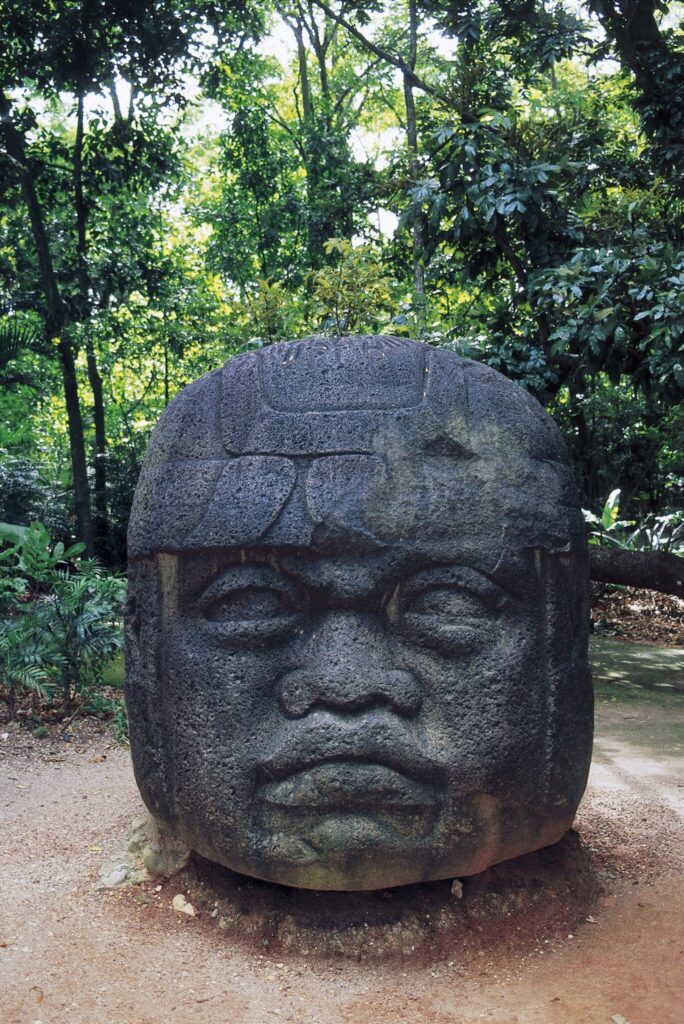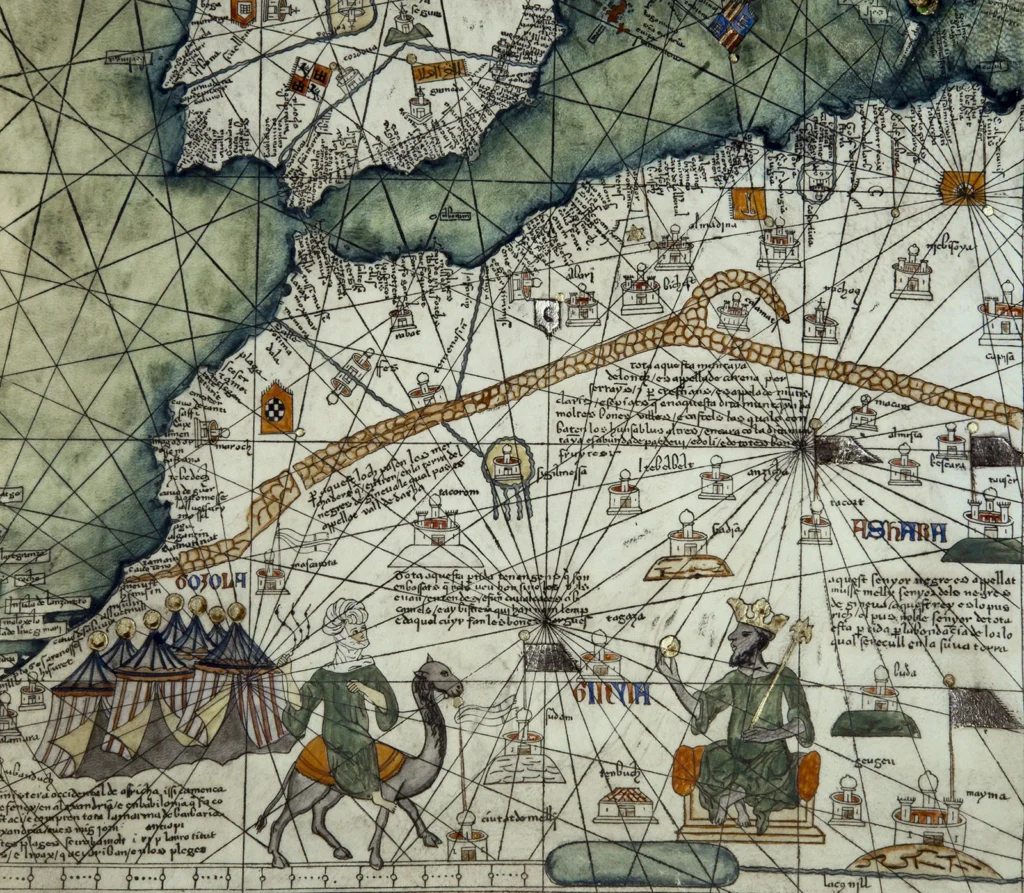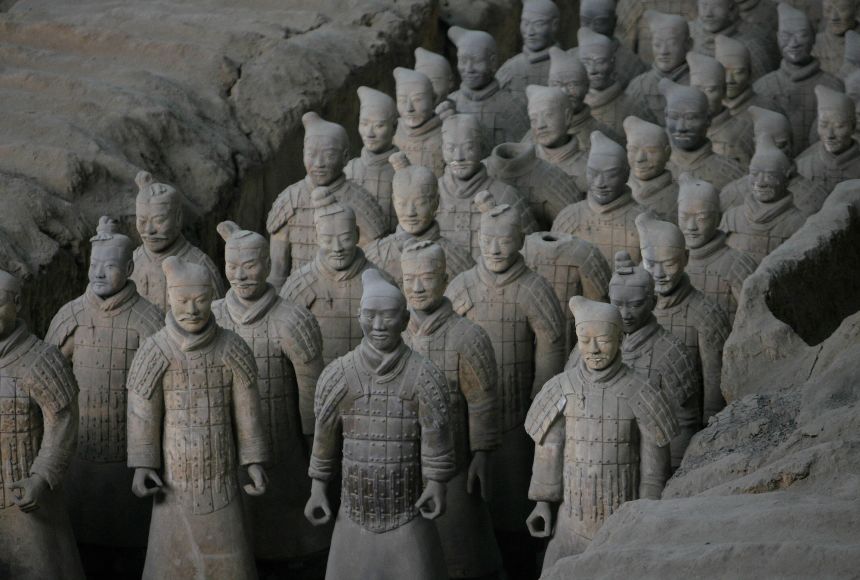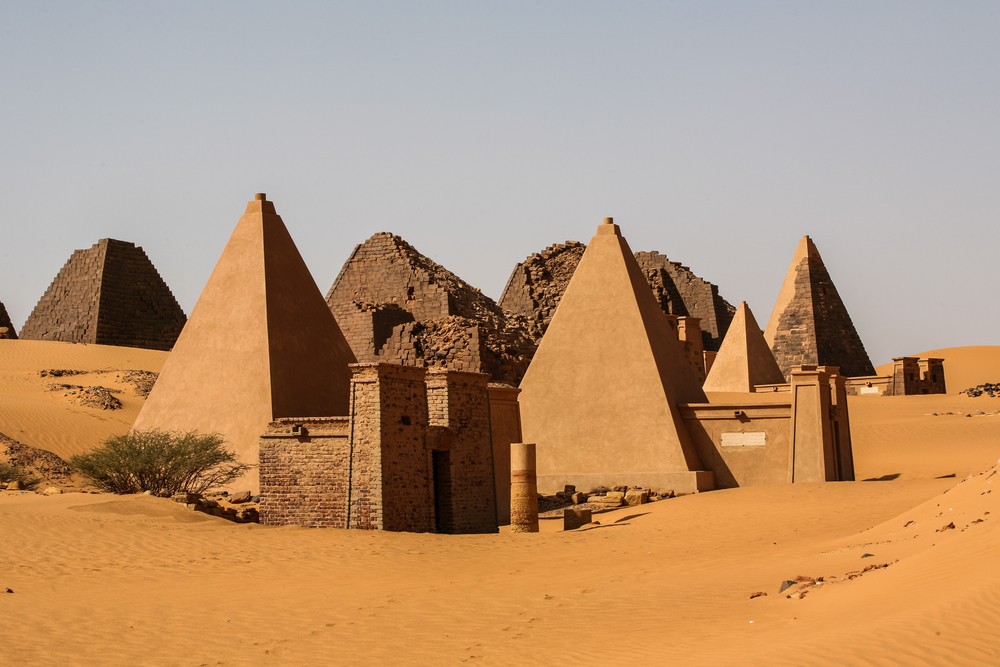A History of the World Part I (Antiquity to 1500): The Myriad Winding Paths to Modernity
3 Lecture Hours/week
3 credits
Zero-Textbook Cost
Instructor Name: Samuel Finesurrey
E-mail: [email protected]




Course Description
A History of the World Part I – Antiquity to 1500
This is a survey of the history of human civilization from the end of the Stone Age to 1500 CE. The course examines human evolution from the earliest agrarian societies to the distinctive features of ancient and medieval cultures and governments. Particular attention is paid to the traditions, achievements, and ways of life in several regional and global military, political, and cultural centers. Moments of contact between cultures will be lifted up as civilizations exchanged materials, goods, illnesses, religions, and most significantly ideas. The course ends roughly around 1500, on the eve of tremendous changes and the emergence of a truly unprecedented global network of trade and communication.
Prerequisites/corequisites:
N/A
Learning Outcomes
|
Appraise major historical events and trace connections between watershed moments overtime and across the globe that shaped the present. |
|
Evaluate varied historical perspectives and significant moments. They will be able to analyze why different peoples think, govern themselves, fight, and interact with each other the ways they do. |
|
Explain patterns and divergences between varied societies and the movements, advancements, conflicts, and struggles that shaped historical and modern experiences. |
|
Analyze and critique different types of historical sources including written texts, art, artifacts, and architecture |
|
Utilize their critical thinking, writing, and rhetorical skills to construct evidence-based arguments about history. |
Suggested Course Textbooks:
Kordas, A., Lynch, R. J., Nelson, B., & Tatlock, J. (2023). World History Volume 1, to 1500. OpenStax. https://openstax.org/books/world-history-volume-1/pages/1-introduction
Kordas, A., Lynch, R. J., Nelson, B., & Tatlock, J. (2023). World History Volume 2, from 1400. OpenStax. https://openstax.org/books/world-history-volume-2/pages/1-introduction
Grading:
Course Assignments and Grading
| A+ | 4.0 | 97-100% |
| A | 4.0 | 93-96.9% |
| A- | 3.7 | 90-92.9% |
| B+ | 3.3 | 87-89.9% |
| B | 3.0 | 83-86.9% |
| B- | 2.7 | 80-82.9% |
| C+ | 2.3 | 77-79.9% |
| C | 2.0 | 73-76.9% |
| C- | 1.7 | 70-72.9% |
| D+ | 1.3 | 67-69.9% |
| D (passing) | 1.0 | 60-66.9% |
| F | 0 | 0-59.9% |
| NC* | Not calculated | 0-59.9% |
| Participation, Attendance & Punctuality | 15% |
| Weekly Assignments | 25% |
| Debate Assignment | 10% |
| Oral History Project | 30% |
| Final Exam | 20% |
Assignments
Oral History Project (30%):
Oral History (10%): You will interview a peer or elder about how they learned about a series of historic events discussed in the class.
Transcript (5%): You must edit your oral history transcript to prepare it for consumption by your classmates.
Final Project (15%): You will have access to each other’s’ testimonies to write about how a historic event is taught and make an argument about what that says about who we celebrate in history and why. You will present your findings to the class in a five minute presentation.
Your final paper/presentation must have…
- A research question you are answering. Make sure it’s a question the interviewees can answer.
- A clear thesis that answers the research question you are posing. The thesis should identify a pattern in the experiences documented through this oral history project.
- At least three body paragraphs with each having a clear topic sentence followed by at least three quotes from the oral histories collected by you and your peers that will be used as evidence.
Rubric for Signiture Assignment:
Oral History (100 Points)
|
Criteria |
Exemplary (90-100 pts) |
Proficient (75-89 pts) |
Developing (60-74 pts) |
Needs Improvement (0-59 pts) |
|
Preparation |
Thoughtful, relevant questions prepared. |
Relevant questions with minor gaps. |
Basic or incomplete questions. |
No preparation or off-topic questions. |
|
Interview Execution |
Showed active listening and asked important and timely follow-up questions |
Showed some active listening and at times asked timely follow-up questions |
Limited or shallow listening displayed. |
Poorly conducted or incomplete interview. |
|
Ethics |
Clear consent obtained, respectful process. |
Minor lapses in ethical considerations. |
Inconsistent attention to ethics. |
No consent or unethical process. |
Transcript (50 Points)
|
Criteria |
Exemplary (45-50 pts) |
Proficient (35-44 pts) |
Developing (25-34 pts) |
Needs Improvement (0-24 pts) |
|
Accuracy |
Complete and highly accurate perfectly following the instructions laid out in the assignment. |
Mostly accurate with minor errors or a failure to fully follow the instructions laid out in the assignment. |
Noticeable errors or omissions. |
Inaccurate or incomplete. |
|
Clarity |
Well-organized, easy to read. |
Clear but with minor formatting issues. |
Lacks clarity or formatting. |
Disorganized and unclear. |
|
Relevance |
Focused on key historical details. |
Some irrelevant details included. |
Key points missing or unclear. |
Off-topic or irrelevant. |
Final Project (150 Points)
|
Criteria |
Exemplary (135-150 pts) |
Proficient (110-134 pts) |
Developing (90-109 pts) |
Needs Improvement (0-89 pts) |
|
Research Question |
Clear, insightful, and answerable. |
Clear but lacks depth or focus. |
Vague or overly broad. |
Missing or irrelevant. |
|
Thesis Statement |
Strong, clear, that lays out the big points of the essay and identifies a pattern that connects the points. |
Laid out some of the key points and etched a somewhat clear conception of a pattern. |
Vague or loosely connected to research. |
Missing or unrelated. |
|
Evidence & Analysis |
Three body paragraphs/key points with strong topic sentences/statements, integrated quotes, and thoughtful analysis. |
Some gaps in quotes or analysis but mostly effective. |
Missing quotes or weak analysis. |
Lacks structure, quotes, or analysis. |
|
Organization & Clarity |
Well-organized with logical flow and clear language. |
Minor lapses in organization or clarity. |
Disorganized or unclear in places. |
Poorly organized or difficult to follow. |
|
Presentation |
Engaging, clear, and concise. |
Clear but less engaging or overlong. |
Lacks clarity or focus. |
Incomplete or unclear. |
Weekly Assignments (25%):
Nearly every week there will be a set of graded assignments due on Sunday nights. You will submit your notes and answer a set of questions based on the assigned materials.
Participation, Attendance & Punctuality (15%):
You are expected to participate in in-class assignments working with primary sources and class discussions showing active listening and critical thinking.
Debate Assignment (10%):
Students will read arguments made by historians and contemporary actors about various topics over the course of the semester including what defines a “civilization”, the nature of empire, and positions on various historical conflicts and movements. This assignment will culminate in every student participating in 1 of 4 debates.
Final Exam (20%):
You will have an open note final exam covering material from the entire course.
Weekly Schedule
|
Week |
Topic |
What’s Due |
Readings |
|
Week #1 |
Class 1: Intro to A History of the World Part One
Class 2: When does human history begin? |
In-class assignment working with primary sources |
|
|
Week #2 |
Class 3: The Agricultural Revolution
Class 4: Ancient Mesopotamia, Egypt, and Nubians |
Notes and short quiz on readings/video.
In-class assignment working with primary sources |
Chapter 3: Early Civilizations and Urban Societies, 4.2: Egypt’s New Kingdom
|
|
Week #3 |
Class 5: Introduction to Oral History Project & Debate Prep
Class 6: Eastern Civilizations Ancient China Japan & the Southeast |
Notes and short quiz on readings/video.
In-class assignment working with primary sources |
Chapter 5.1: Ancient China, 5.3 Korea, Japan, and Southeast Asia |
|
Week #4 |
Class 7: Ancient Asia: The Steppes and Ancient India
Class 8: The Persian World |
Notes and short quiz on readings/video.
In-class assignment working with primary sources |
Chapter 5.2: The Steppes, 5.4 Vedic India and the Fall of the Maurya Empire |
|
Week #5 |
Class 9: The Hellenic and Roman Empires
Class 10: Debate One – Which ancient empires or civilizations influenced in our modern lives? |
Notes and short quiz on readings/video.
Debaters for debate one must be prepared with key points and arguments. |
Chapter 7.2 Slavery in the Roman Empire, 7.3 The Roman Economy: Trade, Taxes, and Conquest, 7.4 Religion in the Roman Empire, 7.5 The Regions of Rome
|
|
Week #6 |
Class 11: Populating the Americas
Class 12: The Great Empires of the Americas |
Notes and short quiz on readings/video.
In-class assignment working with primary sources |
|
|
Week #7 |
Class 13: Debate Two – How should we mark first contact between Columbus and native cultures of the Americas?
Class 14: Ancient Africa |
Notes and short quiz on readings/video.
Debaters for debate one must be prepared with key points and arguments. In-class assignment working with primary sources |
Chapter 9: Africa in Ancient Times Chapter 15 States and Societies in Sub-Saharan Africa |
|
Week #8 |
Class 15: The Rise of Islam
Class 16: Finalizing Oral History Project |
Notes and short quiz on readings/video.
Debaters for debate two must be prepared with key points and arguments. |
|
|
Week #9 |
Class 17: After Rome Fell
Class 18: Editing a Transcript |
Notes and short quiz on readings/video.
Oral History Due
In-class assignment working with primary sources |
Chapter 13.1, 13.2, 13.3 & 13.4
|
|
Week #10 |
Class 19: Debate Three – How does identity work between groups in the ancient world?
Class 20: Connecting East and West – Indian Ocean Trade and Silk Road |
Notes and short quiz on readings/video.
Debaters for debate three must be prepared with key points and arguments.
In-class assignment working with primary sources |
Chapter 12, 14.1 |
|
Week #11 |
Class 21: Introduction to Final Project
Class 22: The Mongols
|
Notes and short quiz on readings/video.
Oral History Transcript Due
In-class assignment working with primary sources |
Chapter 14.2 – 14.4, 16 & 17.1
|
|
Week #12 |
Class 23: A Global World is Born & Final Exam Review
Class 24: Debate Four – Is a globalized world a good thing? |
Oral History Final Project is Due
Debaters for debate four must be prepared with key points and arguments.
In-class assignment working with primary sources |
|
|
|
Last day of Class |
||
|
|
Final Exams |
||

